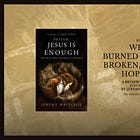There has been a lot of discourse recently around why certain things were able to / allowed to happen in the Church here in the UK. From serious breaches in common sense and safe practice by major evangelical leaders to theological rifts in the UK’s largest protestant denomination, we seriously need to return to biblical wisdom on this issue.
I believe that much of the anger and pain could have easily been circumvented if there was less misunderstanding about how we're supposed to raise up "leaders" in the church. At present, many churches reflect a worldly, corporate model more akin to career progression rather than relying on the Bible to lead their thinking and practice.
In some ways, it is understandable that this has happened. When the whole world around you seems to be going down one path, it takes a concerted effort to walk down another. However. As the church, we are meant to look, act, and sound different, especially with regard to how we choose our Pastors. The worldly model might actually work quite well for certain positions. When deciding upon whether to hire a new Lead Graphic Designer, their ability to use Photoshop and command a team, as well as a steady track record of previous roles that suggest they’re qualified is a wise choice. When deciding on a Pastor, however, worldly wisdom won’t do, however foolish it might look to human eyes (1 Cor 1:25.)
So how should we be raising up new Elders? In short, when we look the life of a potential Pastor, it should help us to evaluate what his legacy will be.
Before anything else, his character must be sure. 1 Tim 3 talks about being trustworthy, the husband of one wife, being self-controlled, and well thought of by outsiders. Above all else, this should be absolutely clear. Choosing between an illiterate former fisherman who has all of those in hand is far better than choosing a qualified expert in Greek and Hebrew who has shipwrecked two marriages and is frequently getting into heated arguments down the local pub. That is obviously a caricature, but there are leaders who have fallen recently who should were seen failing on this account long before the news dropped.
Secondly, they must feel a desire to serve the church, rather than to serve themselves. 1 Tim 3:1 says, “The saying is trustworthy: If anyone aspires to the office of overseer, he desires a noble task.”1 Not a noble title, or a noble career, but a task. He will need to spend late nights in hospital, early mornings in prayer, time spent preparing sermons; he’ll need wisdom in giving tasks to those under his authority, and in how to handle church discipline.
When I was sixteen years old I used to wake up Monday - Friday at 4am to wash, peel, de-eye2, chop, and re-wash potatoes for about four hours. I worked in and lived above a Fish ‘n’ Chip shop and that was what was needed in order to provide the latter half of that equation to our customers. Test your potential Pastor based on whether he has the desire to spend his time doing those kinds of tasks, not on his gift for selling the chips.
Finally—although, this could come before his internal call3—have others recognised his heart. Do people in his life outside the church think highly of him? What would his closest friends say? Has he cultivated long and lasting friendships and relationships? How does he treat his wife, if he has one, and his kids? More importantly than any of this, have you prayed int whether this is wise? Have you sought the Lord diligently for his wisdom to supersede your own?
What About Gifting?
“Isn’t gifting important though?
What if he can’t speak yet?
What will we do then?”
All good questions.
I believe that the gifts of the Spirit are more than mere talents. Even a perfect orator doesn’t equate to a gifted preacher. In 1 Tim 4:14, Timothy is reminded, “Do not neglect the gift you have, which was given you by prophecy when the council of elders laid their hands on you.”4 Timothy fitted the qualifications of an Elder, and was commissioned to raise up others, but it seems that when he was made an Elder, the council laid hands on him so that he would receive the gifting he needed.
This isn’t to say that if someone comes across your desk who is already gifted and has the qualifications of an Elder that you shouldn’t hire him, but don’t neglect someone just because they aren’t gifted yet.
No pastor is ready for everything they have ahead of them. Maybe they’ve not yet sat at someone’s bedside, or raised children, or commissioned deacons, or helped to close a ministry that sorely needs to come to an end. You’ll never find someone who fits every possible need, and you don’t even know every need yet. If you find someone who thinks they do, I’d suggest you point them to Jeremy Writebol’s book, “Pastor, Jesus is Enough.” In fact…I’d probably do that either way.
To Be Clear
This doesn't mean that such things will never happen, hence why the church has always needed teaching and guidance for those times when false teachers do infiltrate the church.
With that said, the Bible gave us these qualifications for a reason, to help guard against the potential wave of wolves that could rampage the church if we let our guard down.
I’d to hear your thoughts though, and whether you think I missed anything.
Grace and Peace,
Adsum Try Ravenhill
All Scripture quotations are taken from: The Holy Bible, English Standard Version. ESV® Text Edition: 2016. Copyright © 2001 by Crossway Bibles
Impurities/imperfections in the flesh of the potatoes.
Augustine is a great example of this.
Emphasis Added










Excellent observations.
I would add that such a pastor
needs to know Scripture, backwards and forwards and be able to connect its parts cohesively. I have just left a situation where a new pastor was beginning to teach extra-Biblical ideas. The first inkling I had that something was wrong was this preacher was always neglecting the obvious cross references (the ones you find in the margins where the Bible is quoting itself) and instead making very odd connections to passages that were talking about unrelated concepts. Those disjointed connections eventually led to the introduction of extra-Biblical claims.
The best pastor I ever had the privilege of learning from was not a good speaker. His voice was gravelly and monotone, his speech pattern halting, he sometimes reversed words. But not only did he meet the I Timothy qualifications, he also knew the Scripture very well, and his exegetical sermons were filled with cross references that enhanced the passage from which he was teaching.